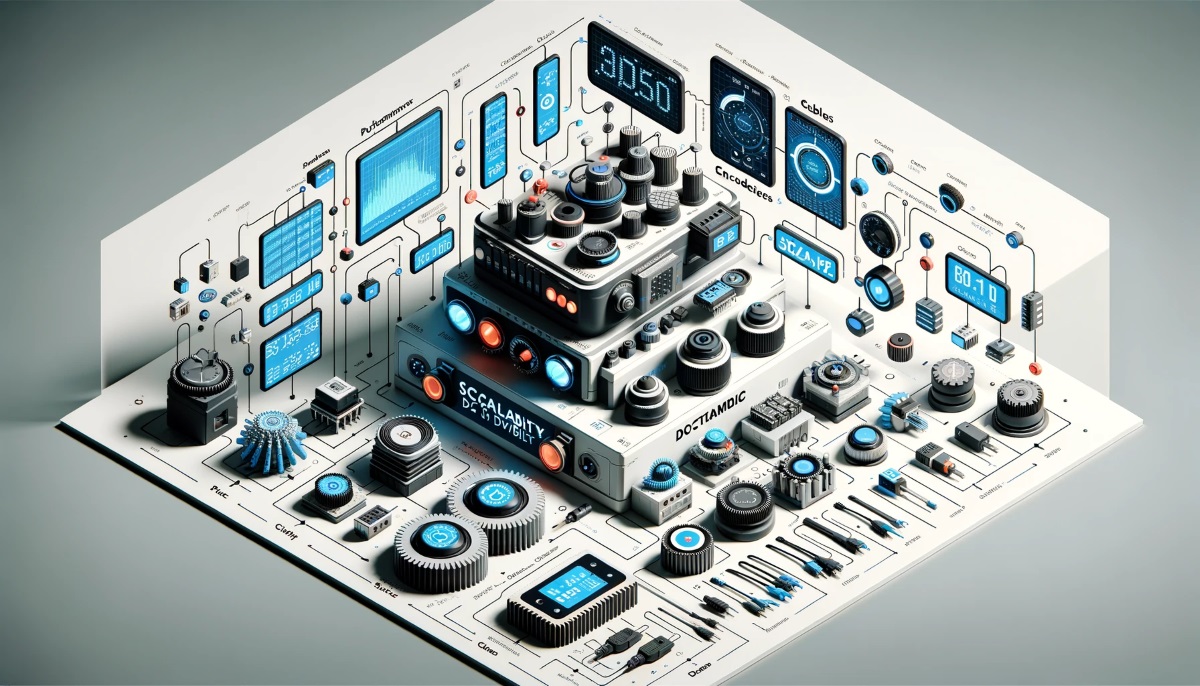How scalable are DC drives?

Hello DC Control friends,
The scalability of DC drives can vary depending on several factors including the manufacturer, model, and application for which it's used. However, here are some general points to consider:
Hardware Scalability
Modular Design: Some DC drives come in a modular form that allows for easy addition of features like input/output modules, communication modules, or even power extensions. This makes the system highly scalable.
Compatibility: Older DC drive systems may not be as scalable due to hardware limitations or obsolete technology. Always check if the hardware is designed with future extensions in mind.
Common DC Bus Systems: Some advanced DC drives can share a common DC bus, allowing for easier scalability and system integration.
Software Scalability
Programmable Logic: Modern DC drives often come with programmable logic controllers (PLCs) or similar software that can be reprogrammed to suit evolving needs.
Software Updates: Manufacturers may offer software updates that can add new features or improve existing ones, making the drive more adaptable to changing requirements.
Multi-drive Systems: Some DC drive systems can be easily configured to work in tandem with other drives, offering a scalable solution for more complex applications.
Operational Scalability
Speed and Torque Ranges: Drives with wide speed and torque ranges can adapt to different operational needs, offering some degree of scalability.
Energy Saving Features: Scalability also extends to how well the system can adapt to changing operational requirements, including energy use. Features like regenerative braking can make a system more adaptable.
Expandable I/O: The ability to add more input/output points can make a DC drive scalable in terms of its capability to interact with other devices and sensors.
Limitations
Cost: While scalability offers long-term benefits, the initial setup may be cost-prohibitive for some applications.
Complexity: As systems become more scalable, they often become more complex, which may require specialized knowledge to maintain.
Legacy Systems: Older systems may not be easily scalable due to outdated hardware or software, or they may require significant retrofitting.
When considering a DC drive for your application, it's essential to discuss scalability needs with the manufacturer or a qualified engineer to ensure that the drive can meet your current and future requirements.
While the use of DC drives in industry (at least at high power levels) has diminished, they are still widely found. Below, we have attempted to answer the most frequently asked questions about DC drives from our visitors.
- What are the operating principles of DC drives?
- What are the different types of DC drives?
- What are the key differences between DC drives and AC drives?
- What are the typical applications for DC drives?
- How energy-efficient are DC drives?
- What are the control methods used in DC drives?
- What type of DC drive is most suitable for a specific DC motor?
- What are the most common problems and solutions associated with DC drives?
- What are the power ranges used in DC drives?
- What additional components are used alongside DC drives?
- What are the advantages and disadvantages of DC drives?
- How do I choose a DC drive?
- How scalable are DC drives?
- Is integration between a DC drive and a PLC possible?
- What are the lifespan and maintenance requirements for DC drives?
- What safety features are included in DC drives?
- How is the dynamic response in DC drives?
- What feedback options are available in DC drives?
- What types of protection mechanisms are used in DC drives?
- What types of sensors can be used with DC drives?
These questions generally also encompass the types of queries that many people may have about DC drives. Each user or student will have their own unique question or interpretation depending on the specific situation or application. The answers provided are not binding and are not definitive. "You are welcome to share the article above as long as you cite it as the source." 05.2019
Your shopping cart is empty!
